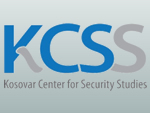Security Policies/Development of Democratic Practice

Project Name: Democratic Control of the Security Institutions in Kosovo
Location: Pristina, Kosovo
Field: Security Policies/Development of Democratic Practice
Target Group: Newly security institutions – Kosovo Security Forces (KSF) and Kosovo Security Council (KSC),
Implemented by: Kosovar Center for Security Studies, KCSS
Supported by: Kosovo Foundation for Open Society (KFOS) – KSF part
Duration: 8 months, 01.05.2008 – 31.12.2008
The process of democratic control of the security institutions in Kosovo undoubtedly is considered as the main challenged field for the Kosovar society. Likewise other countries in the Eastern Europe, even Kosovo was part of the Yugoslav security system which had security institutions build on the socialist pattern with continual lack of civilian oversight. Despite that the national security system in the Eastern Europe started to change after the break up of communism, in Kosovo, because of the repression and apartheid made by the Milosevic regime, no one raised the issue of including the democratic control of the security institutions.[1]
Paradoxically, although the international community established and built security institutions in Kosovo immediately after the conflict, the functional democratic control of the security mechanisms lacked. In addition, the open and public debate about this issue doesn’t take part. However, after the declaration of the independence of Kosovo, the new security institutions will be established which necessarily should be subject to the democratic control. In this way, necessity for alignment among the civil society in this sphere is seen as inevitable and crucial.